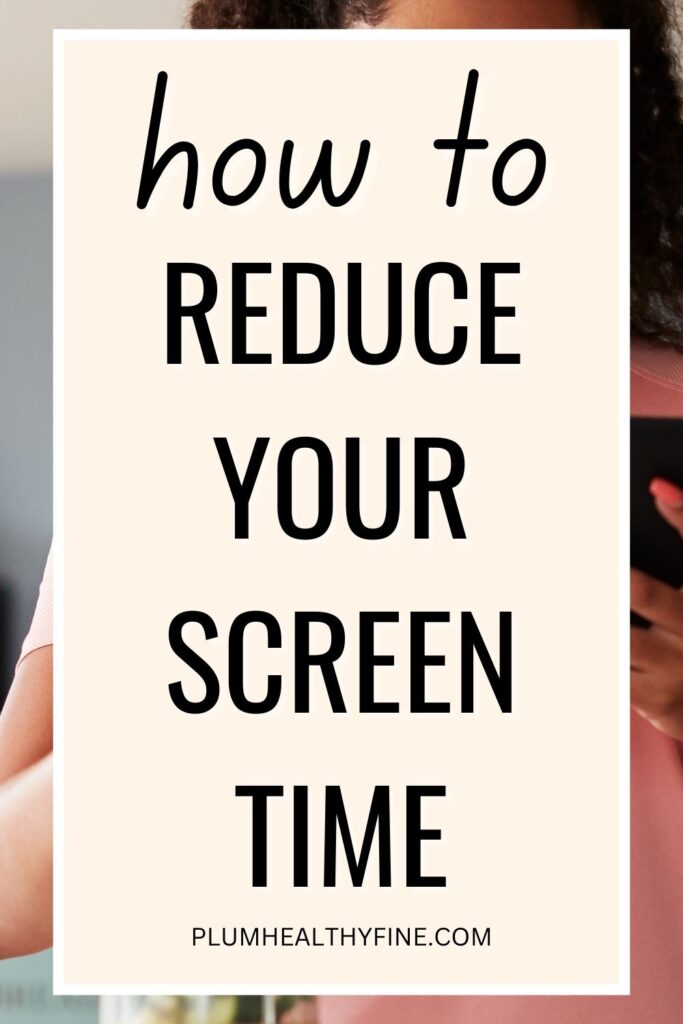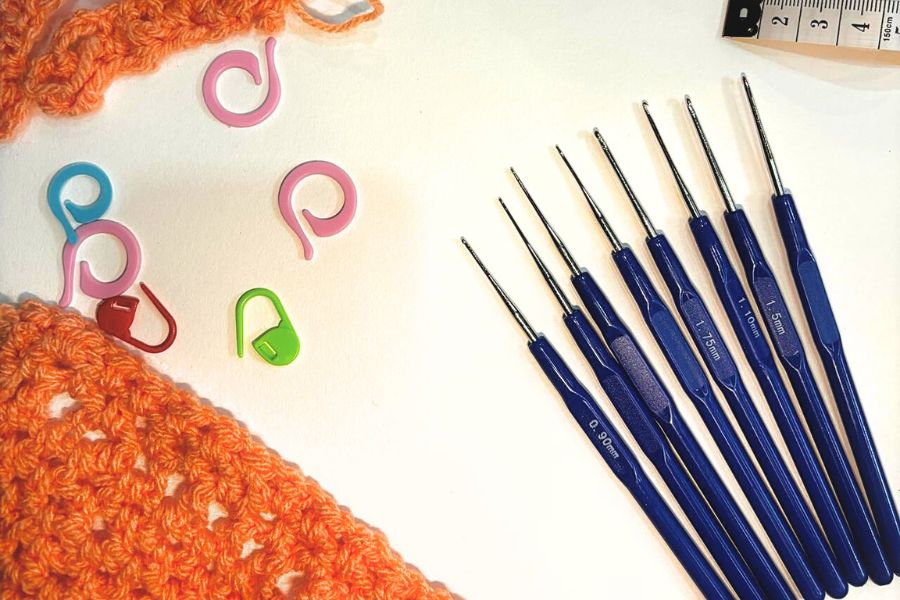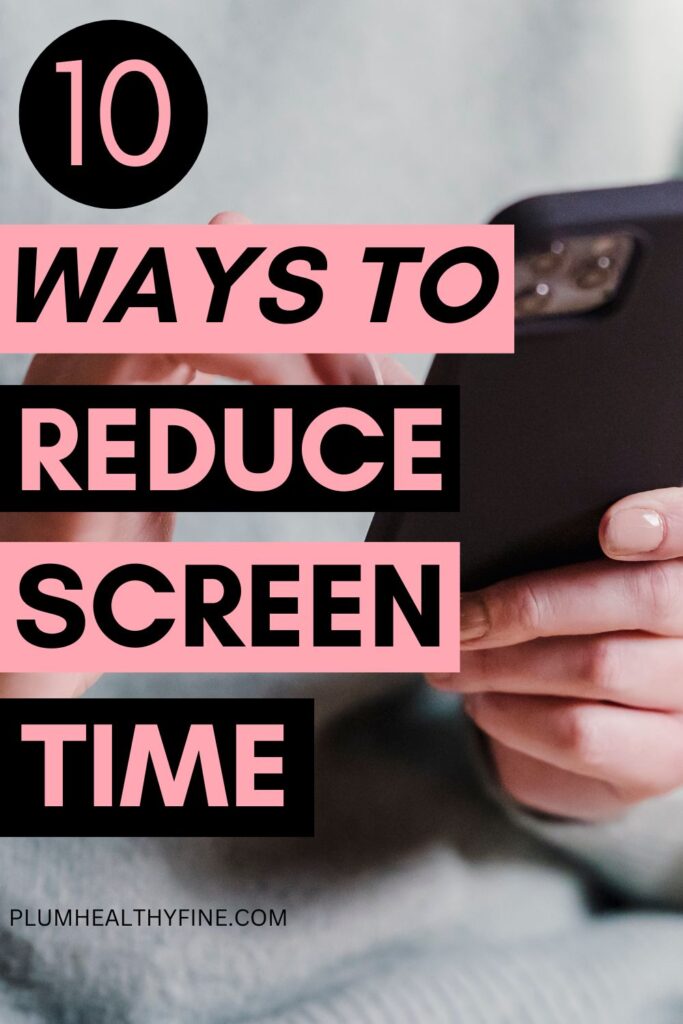Discover 10 smart ways to reduce your screen time and make time for more mindful and healthier activities.

From social media to long-running shows, there are countless reasons for you to stay glued to your screens.
But can we call any of those screentime activities productive or valuable?
Does mindlessly scrolling through the lives of people you’ll never meet make you feel good, or is it making you compare every aspect of yourself to theirs instead?
Is all your free time spent on YouTube or Netflix instead of doing something to connect to yourself or the world around you?
I think you know where I’m going with this stream of questions.
As useful as digital devices are, they also have the power to make you lose awareness of time and spend hours online doing something that adds no value to your life.
I am not a screen-hater by any means. I make a living out of doing stuff online, and I love every part of it.
But I also think that when it comes to using screens in your daily life, less is better and healthier for your well-being.
This post is for every one of you who knows they need to reduce their screen time but just don’t know how to go about this tricky task.
I’ll take you through 10 clever steps that will help you minimize your time on screens and make time for more mindful activities.

If you’re ready to cut down your screen time without feeling like you’re missing out on all the digital action, then read on.
How To Reduce Your Screen Time
1. Set Healthy Boundaries With Your Devices
Establish specific times during the day when you’ll allow yourself to use screens, and stick to them.
It could be as simple as no screens during meals or after a certain hour in the evening.
Let your friends know about the time slots where you won’t be available for calls and texts so that there are no disturbances.
It’s also important to create physical boundaries by creating screen-free zones in your home, like the bedroom or the dining area.
By setting clear boundaries, you can regain control over your screen time and prioritize activities that are good for your wellness and productivity.
2. Find Alternative Activities
Instead of reaching for your phone during your downtime, go for an activity that has nothing to do with the screen.
Make a list of activities you enjoy or have always wanted to try, and allocate dedicated time in your schedule to pursue them.
Read a book, practice a musical instrument, take up a new sport, or engage in creative pursuits like painting or crafting.
Any nature-related activity like a mindful walk is an amazing way to disconnect from screens and reconnect with the world around you.
I am learning to crochet these days (who’d have thought!).
Even though I have to watch online tutorials while learning a new pattern, once I get a hang of it, I spend hours just focusing on the needles and listening to some calm music.

3. Use Screen Time Tracking Apps
Using technology to manage screen time might seem paradoxical, but screen time tracking apps are invaluable tools for raising your awareness.
These apps offer insights into your digital habits by monitoring how much time you’re spending on your devices.
Seeing those numbers in black and white can be a real eye-opener.
By reviewing this data, you can identify your patterns, set goals, and make informed decisions about how to allocate your time wisely.
Some apps even offer features like app blocking or reminders to take breaks.
App Recommendations: Opal, ScreenTime, One Sec, and Cape.
4. Question Your Digital Habits
Self-awareness is the enemy of any bad habit, whether it’s laziness, staying up late, overeating, or excessive use of screens.
Before you reach for your device, take a moment to pause and question why you’re doing it.
Are you genuinely in need of information or entertainment, or are you just reflexively scrolling out of habit?
Every night before bed, reflect on your digital usage for the day and take note of the points where you didn’t need to be online.
This step might seem a bit excessive, but it’s something you’d need to do initially to realize how much your phone and computer are ruling your life.

5. Limit Notifications
Do you really need to be notified every time someone likes your Instagram post or sends you an email?
Probably not.
Yet every time a notification pings, you rush to check what’s new and end up spending a good chunk of time there.
Even a minute spent checking out notifications like this isn’t worth stepping away from the real world.
So do yourself a favor and turn off unnecessary notifications to minimize distractions.
I have all my social media app notifications turned off and only check them twice a day to reply to important texts. Y
ou obviously can’t do this for your work-related apps, but the rest can go.
And even for your work-related communication, I’d recommend turning off the notifications when you’re off duty.
Happier bedtimes and stress-free weekends!
6. Set Screen Time Goals
Challenge yourself to gradually reduce your screen time each week.
Start small and gradually increase your goals as you become more comfortable with cutting back.
For example, you might start by reducing screen time by 30 minutes each day and then gradually extend that to an hour or more.
Celebrate your progress along the way and acknowledge any challenges you encounter with compassion and patience.
By embracing this gradual approach, you allow yourself the space to adapt to new habits and cultivate a more mindful relationship with screens over time.

7. Turn Off Your Devices Before Bed
The blue light emitted by screens can interfere with your sleep quality.
Make it a habit to power down your devices at least an hour before bedtime to help your brain unwind.
During this one hour, create a self-care night routine that is full of mindfulness rituals.
Take a warm shower, do your skincare routine, and sit down with a cup of herbal tea.
Read a book, do meditation, or write something in your journal before closing the lights and going to sleep.
Recommended post: 15 Lazy Habits You Should Quit To Be More Active
8. Get Moving
Instead of binge-watching Netflix on the couch, lace up your sneakers, grab your headphones, and get yourself moving.
Head outside for a long walk, hit the gym, or take a light jog in the park. You can do all this while exploring new podcast genres or listening to a motivational music playlist.
This will give you a refreshing change of scenery and let you combine entertainment with exercise effectively.
I like to take a stroll on the terrace after dinner while listening to a podcast.
It ticks off my digital needs before my nighttime routine while keeping me away from the screen.

9. Practice The 20-20-20 Rule
The 20-20-20 rule is a simple and clever strategy for reducing eye strain and minimizing prolonged screen time.
The rule is pretty straightforward: for every 20 minutes spent looking at a screen, take a 20-second break to focus on something 20 feet away.
This brief pause allows your eyes to relax and refocus.
You’ll be less likely to experience eye fatigue, dryness, and headaches associated with excessive screen time.
Set 20-minute reminders to prompt yourself to take these short breaks consistently throughout the day.
This tip is especially helpful for people who work on their computers for long hours and forget to take breaks.
Check out: How To Take A Mental Break From Life – 13 Simple Ways
10. Lead By Example
Spread the benefits of reducing screen time amongst your friends and family by talking to them about it during conversations.
It’s important to not sound like a know-it-all while talking about this, as that can turn people off real quick and not make them take you seriously.
Instead of pushing your thoughts on them, tell them how being screen-free has helped you create happiness and balance in your life.
Most importantly, lead by example. Show them the benefits of disconnecting from screens and spending quality time together.
Organize family activities that don’t involve screens, like board game nights, picnics in the park, or outdoor adventures.
This will also strengthen your relationships with your loved ones and create some precious memories for you to look back on.

Say Yes To More Screen-Free Hours
Reducing your screen time doesn’t mean eliminating screens from your life altogether.
It’s all about finding a healthy balance that allows you to stay connected without sacrificing your well-being.
The tips in this post will help you reduce your screen time and carve some precious screen-free hours in your day.
Wishing you a happy journey toward a future where instead of dominating, your screens enhance your life.
Read next: 5 Time Management Tips That Will Make Your Life Stress-Free
Got any other tips for cutting down on screen time? Share them in the comment box below. I’d love to try what’s working for you.





Leave a Reply